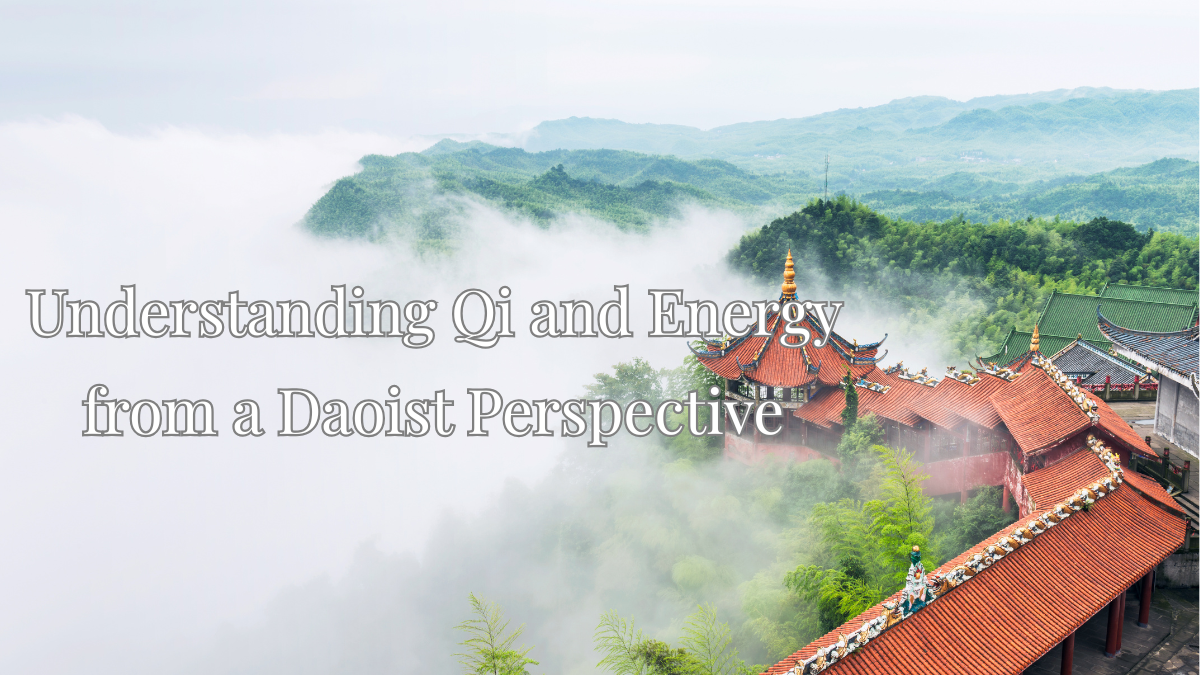Intro:
In Chinese thought, Qi (pronounced “chee”) is often translated as “energy,” but in Daoist philosophy it refers to something far subtler—the living breath of the cosmos itself. This article explores how Daoism understands
Qi not as a physical force, but as the connective rhythm between nature, body, and consciousness. It bridges classical philosophy and meditative experience, showing how “sensing Qi” becomes a path of harmony with life itself.
Preface: Sensing the Flow of Life in Stillness
In Daoist philosophy, Qi is far more than physical energy. It is the dynamic manifestation of the Dao—the unseen, ever-generative source of all existence. To “sense Qi” is not merely a skill or technique; it is a contemplative practice, a way of returning one’s awareness from the outer noise of the world to the quiet pulse of the cosmos. Through this process, the practitioner reconnects with the living origin from which all things arise.
The Ontology of Qi — The Bridge Between the Unmanifest and the Manifest
Daoism views Qi as the subtle bridge between Wu (the formless) and You (the formed). The Dao De Jing states, “All things under heaven are born from being, and being is born from non-being.” This non-being is not empty void, but a fertile potential—the Dao itself.
Qi emerges as the first movement of this potential, the breath of existence. As Zhuangzi wrote, “Throughout the universe, it is one Qi that flows.” Mountains, rivers, and human bodies are simply different condensations of this same living current.
To sense Qi, then, is not to chase something external. It is to realize the living continuity between self and cosmos. The human body, as a microcosm, constantly mirrors the rising and descending rhythms of Heaven and Earth. The Daoist ideal of unity between Heaven and Man is not mystical symbolism—it rests on the reality of Qi as a shared medium. When awareness turns inward from outer forms to inner flow, one begins to feel how personal life vibrates in resonance with the greater movement of the universe.
The Philosophy of Sensitivity — Xinzhai, Zuo Wang, and Wu Wei
If Qi connects Dao and the ten-thousand things, how do we walk across that bridge? Daoism offers a paradoxical answer: through non-action (wu wei). This does not mean doing nothing; it means suspending the interference of grasping thought so that natural awareness can unfold.
Xinzhai — Fasting of the Heart
As Zhuangzi says, “Only when the Dao gathers in emptiness—this emptiness is the fasting of the heart.” To sense Qi, the mind must first become empty, like a cup that can receive fresh water. When the heart is cluttered with desire, judgment, and intention, it loses its ability to perceive subtle movement. Xinzhai is a cleansing of perception, a return to clarity where the mind becomes a mirror reflecting the play of Qi without distortion.
Zuo Wang — Sitting in Forgetfulness
Deeper still is Zuo Wang, “to sit and forget.” It is to loosen the body’s heaviness, to quiet the tyranny of intellect, to drop all distinctions between self and world. In this state of luminous forgetting, one experiences the boundless communion where inner and outer Qi are one continuous breath. Forgetfulness, paradoxically, becomes the truest form of awareness.
Within this practice, relaxation (song) and stillness (jing) are no longer mere techniques—they are the physical and mental expressions of wu wei. Relaxation is the body’s non-doing; stillness is the mind’s non-grasping. Every genuine method of Qi cultivation arises naturally from these two foundations.
In the Dissolving of Sensation, We Meet the Dao
The purpose of sensing Qi is not to gain power or to cling to special experiences. As the Dao De Jing warns: “Those who strive, fail; those who hold on, lose.”
True sensitivity ultimately leads beyond the act of sensing itself. When personal Qi harmonizes with the greater field of Heaven and Earth, one enters the state the ancients called “the softness of an infant”—utterly responsive, yet free from resistance. The separation between “the one who feels” and “that which is felt” quietly dissolves. Awareness becomes the flow itself.
This is the deepest meaning of Daoist energy practice: through the body’s awareness, one awakens to the Dao.
In the gentle continuity of breath, in the stillness where body and mind fall away, we learn to yield to the natural order. And in that effortless harmony, we may glimpse the source that gives life to all things—formless, silent, and eternal.
To sense Qi, in the end, is to return to the Dao: to live each breath as a moment of ease and belonging within the vast rhythm of existence.
